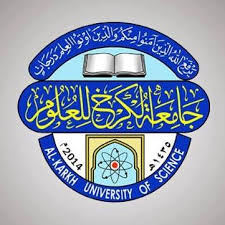This special session is organised and supported by Al-Karkh University of Science (Baghdad-Iraq)
Synopsis:
Nanomaterials-based sensors have several benefits in sensitivity and specificity over sensors made from traditional materials. Nanosensors have increased specificity because they operate at a similar scale as natural biological processes, allowing functionalization with chemical and biological molecules, with recognition events that cause detectable physical changes. Enhancements in sensitivity stem from the high surface-to-volume ratio of nanomaterials, as well as novel physical properties of nanomaterials that can be used as the basis for detection, including nanophotonics. Nanosensors can also potentially be integrated with nanoelectronics to add native processing capability to the nanosensor.
There are many mechanisms by which a recognition event can be transduced into a measurable signal. Electrochemical nanosensors are based on detecting a resistance change in the nanomaterial upon binding of an analyte, due to changes in scattering or to the depletion or accumulation of charge carriers. One possibility is to use nanowires such as carbon nanotubes, conductive polymers, or metal oxide nanowires as gates in field-effect transistors, although as of 2009 they had not yet been demonstrated in real-world conditions. Other examples include electromagnetic or plasmonic nanosensors, spectroscopic nanosensors such as surface-enhanced Raman spectroscopy, magnetoelectronic or spintronic nanosensors, and mechanical nanosensors. Therefore, this special session invites authors to submit high-quality research papers on the topics which include (but are not limited to) the following:
- Biosensors
- Gas Nanosensors
- Petroleum nanosensors
- Thin films
- Nanocomposites
- Biomaterials
- Superconductivity
- Optoelectronics
- Functional and smart materials
Paper Submission:
Prospective authors are invited to submit full-length papers (not exceeding 6 pages) conform to the IEEE format . All papers will be handled and processed electronically via the EDAS online submission system.
Submission implies the willingness of at least one of the authors to register and present their papers.
Al-Karkh University of Science will sponsor 50% of the registration fee for all accepted papers to this special session.
Main point of contact: Dr. Fadhil Muhi Mohammed , Tel: 00964 7902711188
eMail: fadelmohai@yahoo.com


